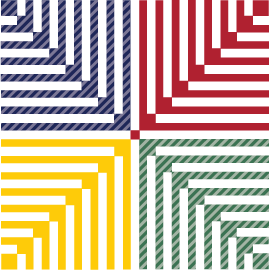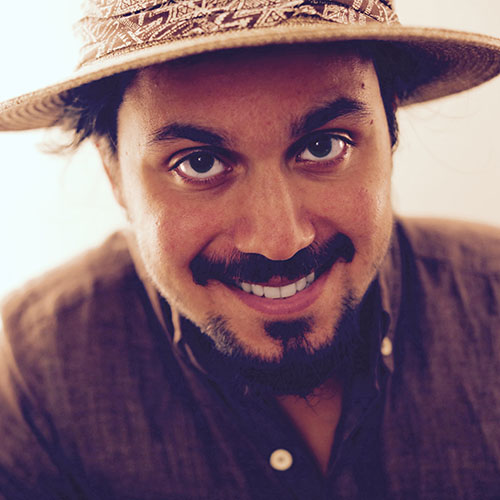Bonboné is a short narrative film about smuggled conceptions that occur when Palestinian men who are sentenced to long prison terms in Israeli prisons smuggle sperm out of the jails to enable their wives to conceive via IVF on the outside. This practice became quite popular (with an estimated 65 incidents as of 2014) until 2015, when Israeli authorities clamped down and made it more difficult.
Director Rakan Mayasi tactfully imagines this experience through the story of one young, frustrated couple played by Saleh Bakri and Rana Alamuddin.
The film unfolds in an Israeli prison, where Alamuddin visits Bakri to secure the sperm with only a limited “fertility window” of a few hours in which to impregnate herself with it. As the story develops, the emotional realities of life under Israeli occupation are evident, from the stress-induced wearing-down of prisoners’ bodies in prison to the exhaustion and harassment family members endure to visit inmates.
Bonboné premiered at the Toronto International Film Festival in 2017 and was a nominee for best international short film at the festival. Since then, it has received numerous awards at international festivals in Spain, France, Moscow, Tunisia, Tangiers, Serbia, and more.
Rakan Mayasi, 33, is an independent filmmaker from Palestine, born in Germany, raised in Jordan, and currently based in Lebanon Bonboné is his fourth short film and second to screen at BPFF (following Roubama in 2016).
BPFF: Whenever I watch Palestinian films, I’m always curious about the sourcing for costumes and how scenes related to the the occupation (prisons, checkpoints etc.) are designed and shot. The sets and costumes in Bonboné felt so real. Where was the film shot, and how did you scout for costumes and locations? And how long did the film take to shoot?
RM: Israeli prisons have very specific characteristics, and they’re designed in specific ways. Since we’re unable to find very similar prisons in Lebanon, we always have to construct them. So we have a set designer, an architect, and all the people around them, including the production designer and the art director. They all come together to make a set. A lot of films have demanded Israeli army costumes and so they’re there, they exist, and we just rent them. We make sure it looks the same and is convincing. It took us six days to shoot Bonboné, and it was very problematic because the visa for the main actor, Saleh Bakri, came through only one day before the shoot. Until the last minute, everything was in full suspense.
BPFF: How did you become interested in the topic of couples smuggling sperm out of Israeli prisons? What was the research process for this like? Did you get a chance to speak to women who went through this process?
RM: I belong to the Palestinians in diaspora. I’ve never visited Palestine, and I’m not allowed to go back. So for me, Palestine is an idea, a concept, and I’m still discovering it. I discover it in films and photographs and images and music, and this is how I know Palestine. Of course, through stories about it, too. I discovered this subject by reading an article about it in 2011. I don’t know why I didn’t make a film about it back then—maybe I wasn’t ready—but in 2014, I read more about it and it had became more more common. I said to myself this is a brilliant subject for a film—it encompasses love, beauty, defying the occupation while procreating, and without killing anyone, so it’s beautiful.
The research took some time because I had to learn certain details—for example, how do they smuggle the sperm? Of course, the way it’s been done in the film has not been done in the real world, but they’ve smuggled sperm in maybe somehow similar ways. I researched the subject through friends as well, not only scientifically, but also to get to know cases. Through someone, I got introduced to a couple, but I didn’t talk to them directly. Someone else served as an intermediary, let’s say.
BPFF: Why do you feel that this is an important story to tell?
RM: Basically, because it’s important to resist the oppressor, to defy the occupier. Smuggled conception is one of the most creative and beautiful ways to resist that has been recorded in life, I think. And I can say that comfortably. I feel lucky that I had this subject to work with. Other than that, a lot of men are being put in prison with very strict rules and it’s clearly apartheid. Palestinian prisoners do not have the right to have sexual intercourse while in prison, while Israeli prisoners are allowed that. One has to resist.
BPFF: From your research, what did you find was the typical step-by-step for women once they receive the sperm from their husbands?
RM: Of course what happens in the film is an interpretation of an idea, so in vitro fertilization (IVF) scientifically happens in the lab, and in the film it happens with a metaphorical breath, or layer. It is presented in the way we see it in the film, but it doesn’t matter any more or less for me, as a writer or director, if she actually gets pregnant or not, because the idea was to transfer this part of the soul of the man and to put it in the soul of the woman to have a child—at least this has been completed. And plus, it was the only way to do it for her; there was not enough time. There is a clinic in Ramallah called Razan that is famous for offering IVF. They do it for Palestinian couples for free. There’s also a new fatwa that talks about IVF, because it became a way to resist and more common, so it needed a fatwa, a background law, to protect it. So a woman has to give two testimonials and the man has to have the same so that the conception becomes, let’s say, legitimate somehow.
BPFF: Where did you write Bonboné, and how long did it take to write?
RM: I wrote the film in Beirut and it took seven months to write. It had seven drafts, and each draft took a month.
BPFF: You’ve written and directed three of your short films. What impact does playing the roles of both writer and director have on a film?
RM: When I think about cinema and making films, I like to think about writing these characters and worlds and giving them life through directing. Playing this double personality, let’s call it—I think both go together in harmony. It feels great, because you have full control over what’s happening. It might be more difficult, but it’s still very authentic.
—Amira Asad for BPFF
Bonboné screens Sunday, October 28, 2018 at 3 pm at the Museum of Fine Arts, Boston preceding Naila and the Uprising.
View the full festival schedule and buy tickets here.


